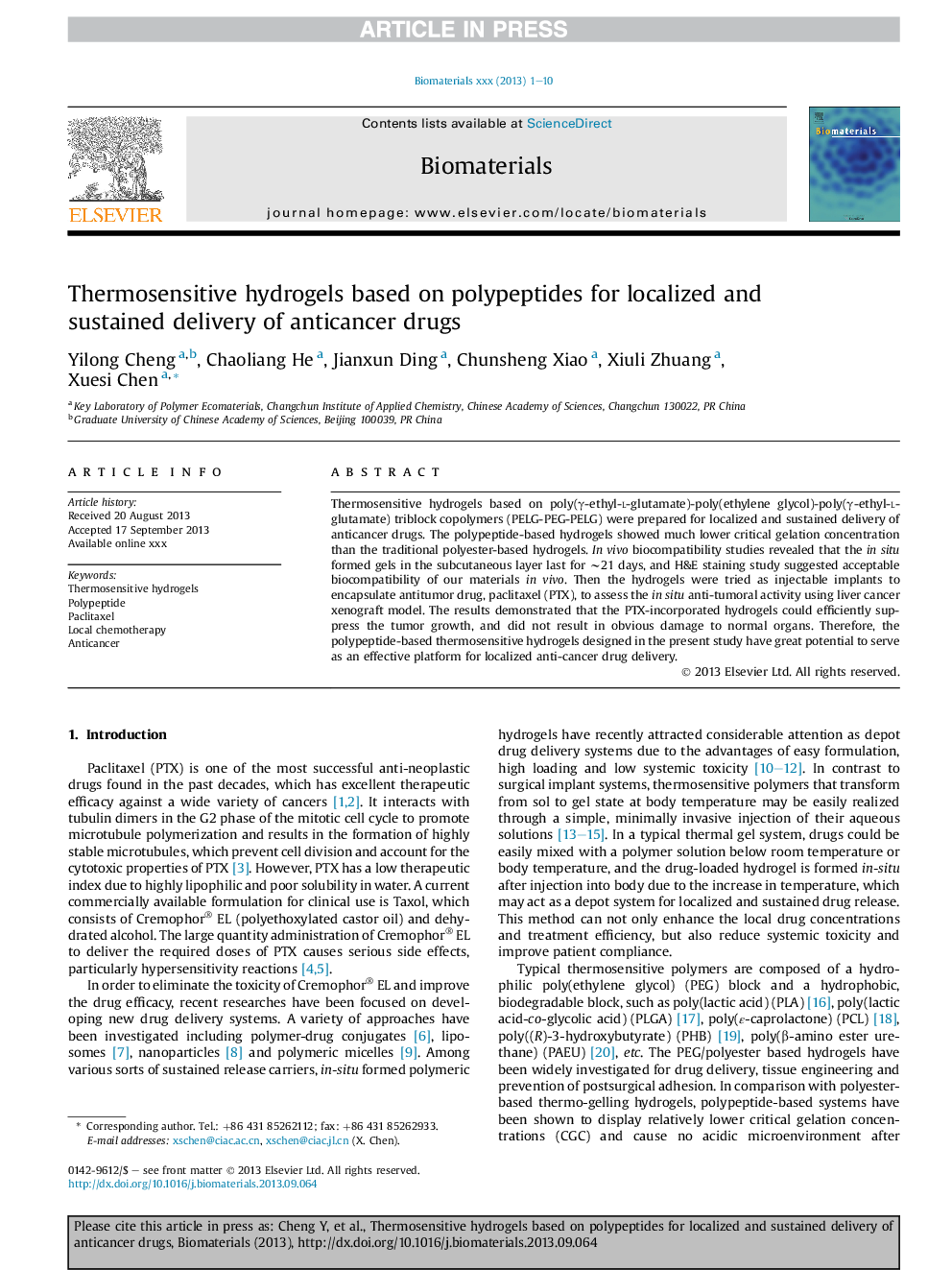| Article ID | Journal | Published Year | Pages | File Type |
|---|---|---|---|---|
| 10228194 | Biomaterials | 2013 | 10 Pages |
Abstract
Thermosensitive hydrogels based on poly(γ-ethyl-l-glutamate)-poly(ethylene glycol)-poly(γ-ethyl-l-glutamate) triblock copolymers (PELG-PEG-PELG) were prepared for localized and sustained delivery of anticancer drugs. The polypeptide-based hydrogels showed much lower critical gelation concentration than the traditional polyester-based hydrogels. In vivo biocompatibility studies revealed that the in situ formed gels in the subcutaneous layer last for â¼21 days, and H&E staining study suggested acceptable biocompatibility of our materials in vivo. Then the hydrogels were tried as injectable implants to encapsulate antitumor drug, paclitaxel (PTX), to assess the in situ anti-tumoral activity using liver cancer xenograft model. The results demonstrated that the PTX-incorporated hydrogels could efficiently suppress the tumor growth, and did not result in obvious damage to normal organs. Therefore, the polypeptide-based thermosensitive hydrogels designed in the present study have great potential to serve as an effective platform for localized anti-cancer drug delivery.
Related Topics
Physical Sciences and Engineering
Chemical Engineering
Bioengineering
Authors
Yilong Cheng, Chaoliang He, Jianxun Ding, Chunsheng Xiao, Xiuli Zhuang, Xuesi Chen,
